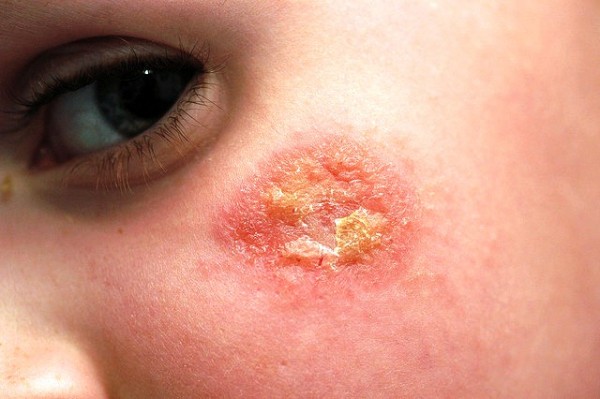Eczema in Childhood can Persist Into Your 20’s: Study

Eczema during childhood can persist persists into the 20s, and is considered to be a lifelong disease, according to a study.
Eczema or atopic dermatitis (AD) is serious skin condition of extreme dryness, redness and prolonged itchiness that affects infants and children. The condition is very difficult to treat but can be controlled with medications. According to the Asthma and Allergy Foundation of America, AD accounts for one percent of pediatric hospitalization in the U.S. and more than half of infants develop the disease before they are one year old. A new study finds that this disease persists into a child's later years, till he becomes a young adult.
Researchers from the University of Pennsylvania's Perelman School of Medicine in Philadelphia observed nearly 7,157 children who took part in the Pediatric Eczema Elective Registry (PEER) study to assess the prevalence of the eczema in later years. The participants were aged 1.7 on average when they were affected by eczema.
About, 80 percent of the subjects reportedly exhibited symptoms of the condition and used topical medications till they were 26 years old. Five years post the observation, experts found that 64 percent of the participants did not have a single six-month period when there were free from eczema symptoms or didn't need medications. The findings also revealed that half of the participants were able to achieve at least one six- month period free of symptoms and treatment only when they reached the age of 20.
The authors believe the severity of the condition in earlier years indicate the possibility for Eczema to lapse in a person's twenties. They said in a news release, "more severe the disease therefore more persistent eczema."
Researchers added, "In conclusion, symptoms associated with AD seem to persist well into the second decade of a child's life and likely longer. Based on our findings, it is probable that AD does not fully resolve in most children with mild to moderate symptoms. Physicians who treat children with mild to moderate AD should tell children and their caregivers that AD is a lifelong illness with periods of waxing and waning skin problems."
The study urges parents and caregivers to take necessary measures and proper skin care regimes to control the outbreak and deal with symptoms of Eczema.
More information is available in JAMA Dermatology.
Apr 05, 2014 05:36 AM EDT





